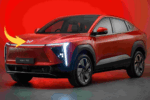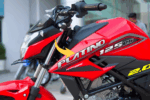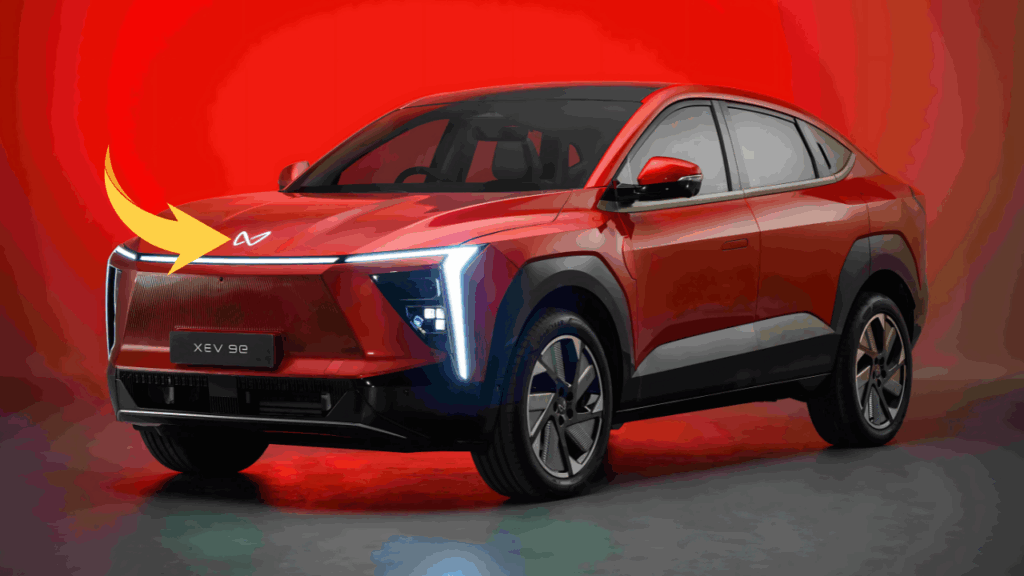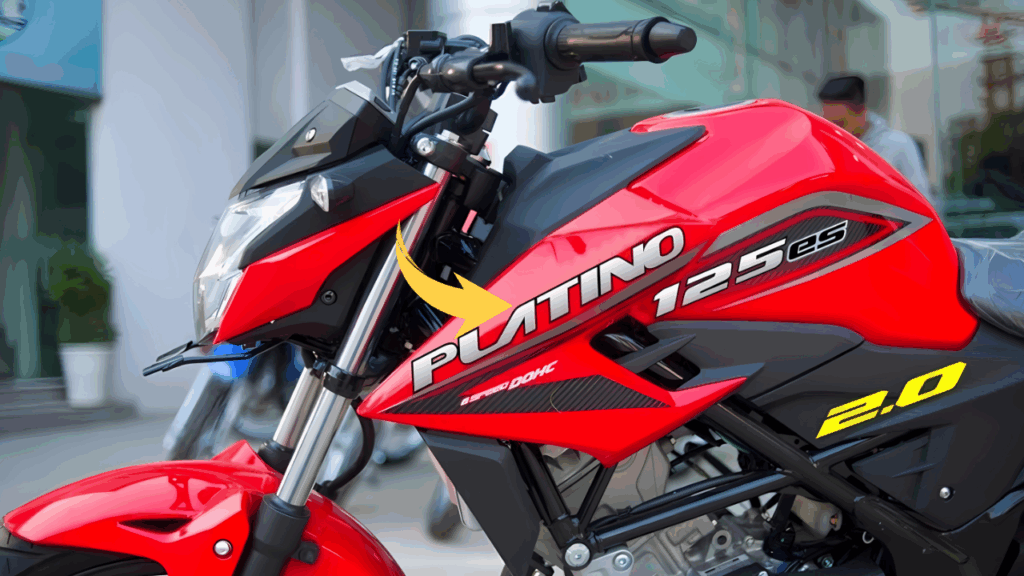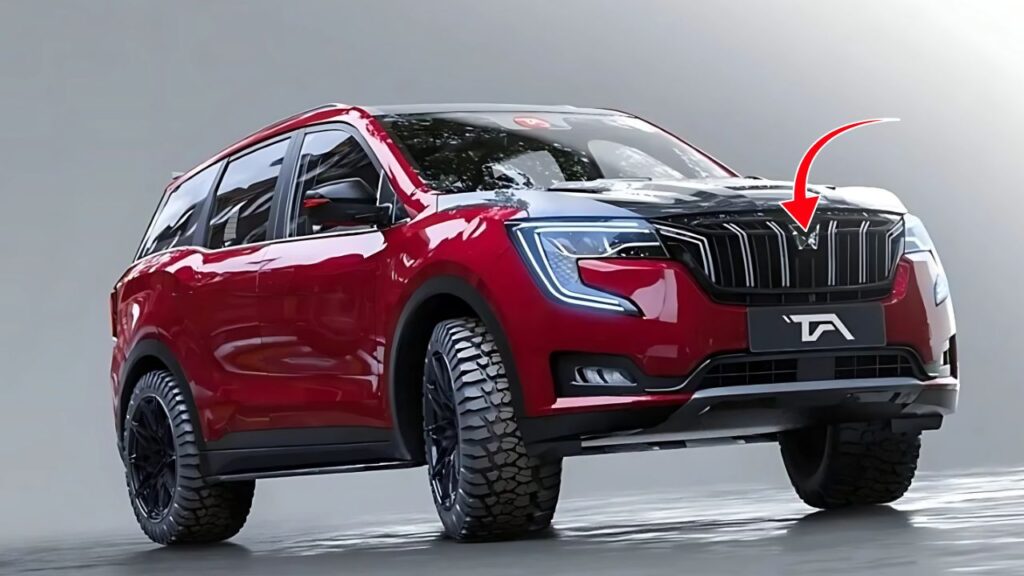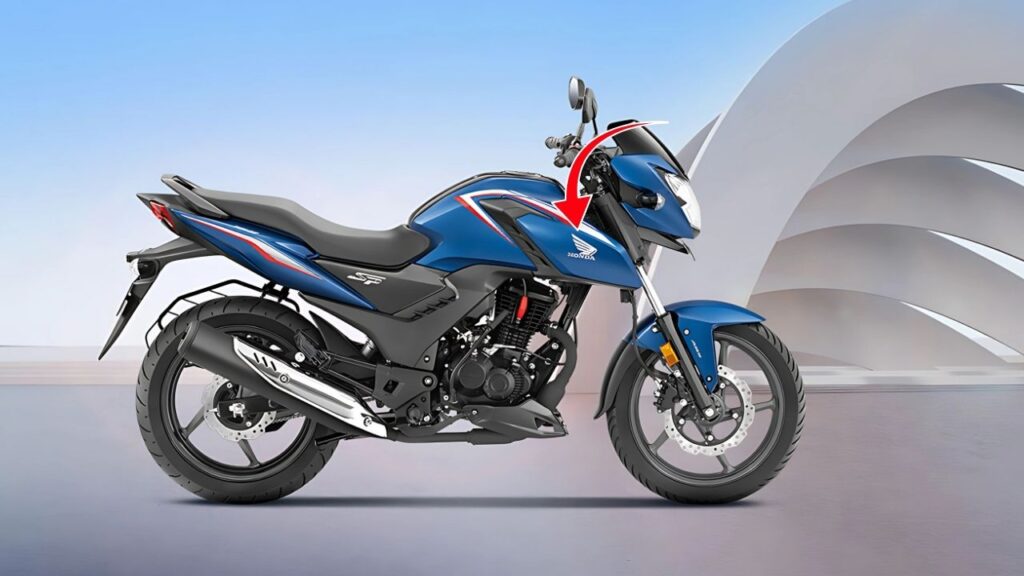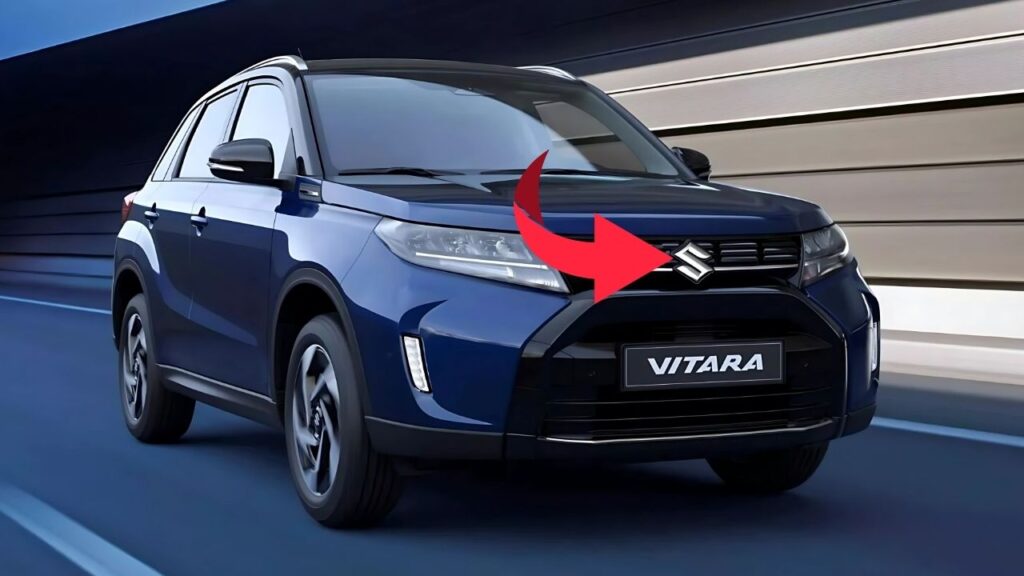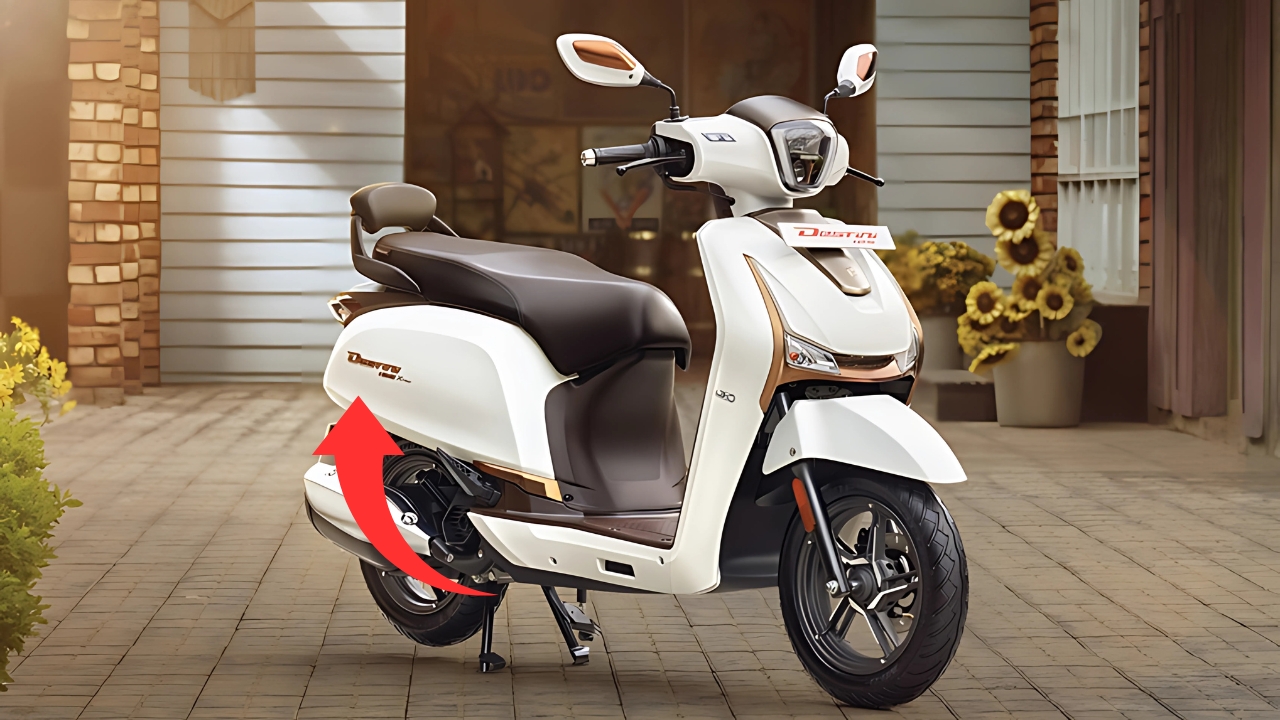
Hero Destini 125: In the crowded landscape of Indian scooters, where differentiation often proves challenging, the Hero Destini 125 carves a distinct identity through thoughtful feature integration and pragmatic design choices rather than flashy gimmicks.
Positioned as a family-oriented offering in the increasingly popular 125cc segment, the Destini combines accessible pricing with practical features that address everyday needs of Indian households, creating a compelling proposition for those seeking reliable mobility without unnecessary frills or complexity.
Table of Contents
Hero Destini 125: Market Context: The 125cc Evolution
To appreciate the Destini’s positioning requires understanding the evolving Indian scooter market.
For decades, the 100-110cc segment dominated, with fuel efficiency and affordability trumping all other considerations.
The gradual shift toward 125cc offerings reflects changing consumer expectations – a desire for more substantial performance and features while maintaining reasonable efficiency and approachable pricing.
Hero MotoCorp’s entry into this segment with the Destini represented a calculated approach to address specific customer needs rather than merely chasing competitors.
While rivals often emphasized sportiness or technological showcasing, Hero identified a significant consumer segment seeking practical family transportation with refined styling and essential modern features without the premium pricing of more performance-oriented alternatives.
This positioning aligned perfectly with Hero’s established brand strength – delivering reliable, low-maintenance two-wheelers that prioritize long-term ownership satisfaction over short-term showroom appeal.
The Destini’s subsequent market performance, consistently appearing among the top-selling 125cc scooters, validates this strategy and demonstrates the substantial demand for sensibly conceived family transportation.
Design Philosophy: Dignified Simplicity
The Destini’s aesthetic approach emphasizes clean, uncluttered lines and balanced proportions rather than aggressive styling elements or excessive embellishment.
The front apron features flowing contours that avoid both the excessively angular treatment of sport-oriented competitors and the overly conservative designs of traditional models.
The chrome “V” element on the front adds a touch of premium feel without appearing ostentatious.
Body panels maintain consistent surfacing with thoughtful detailing like the side character lines that add visual interest without complicating the fundamental form.
The seat profile widens appropriately toward the rear, providing adequate support for both rider and passenger without creating excessive visual bulk.
The tail lamp integrates cleanly into the rear bodywork, maintaining the cohesive design language.
Color options reflect understanding of the target demographic’s preferences. The Pearl Silver White and Panther Black options offer understated elegance suitable for all ages, while Noble Red and Chestnut Brown provide more distinctive alternatives without appearing flashy or juvenile.
The judicious use of chrome accents – on the front badge, side body molding, and rear grab rail – adds premium touches that Indian consumers often associate with higher-value products.
The overall impression conveys dignified maturity rather than trying to appear more exotic or performance-oriented than the scooter’s fundamental character.
This honest approach resonates particularly with family-focused buyers who prefer subtlety over showiness and appreciate design that ages gracefully rather than chasing momentary trends.
Ergonomic Considerations: Family-Focused Functionality
Swing a leg through the Destini’s low 778mm step-through, and the family-oriented ergonomics become immediately apparent.
The floorboard offers expansive flat space that accommodates everything from grocery bags to small gas cylinders – everyday realities for many Indian households.
The slightly raised front section helps secure items during transit while maintaining comfortable foot positioning for riders of varied heights.
The seat deserves particular praise for its thoughtful design. The 785mm height proves accessible to riders across a wide range of physical statures, while the generous width provides proper support for both commuting and longer journeys.
The subtle contouring prevents sliding during braking while avoiding aggressive shaping that would restrict movement or comfort.
The textured upholstery balances grip with ease of cleaning – a practical consideration for a family vehicle exposed to everything from food spills to muddy conditions.
The handlebar position creates a natural reach that avoids both the stretched-forward posture of sport models and the excessively upright position that can create wrist strain during longer rides.
The switch gear operates with positive tactile feedback, allowing operation without visual confirmation once familiarized – an important safety consideration during urban commuting.
Storage solutions received appropriate attention throughout development.
The 19-liter under-seat compartment accommodates a half-face helmet along with personal items, while the convenient front storage pocket provides quick access to frequently needed items like mobile phones or tollbooth passes.
The standard bag hook supports up to 3kg, acknowledging the scooter’s role in daily shopping errands and household provisioning.
Perhaps most tellingly, the Destini incorporates a side stand indicator with vehicle immobilizer – a seemingly small feature that addresses a genuine safety concern for many Indian families where multiple household members of varying experience levels may operate the vehicle.
This thoughtful inclusion exemplifies Hero’s understanding of real-world usage patterns rather than merely assembling impressive specification lists.
Powertrain Character: Sufficient Performance with Sensible Efficiency
At the heart of the Destini lies Hero’s 124.6cc air-cooled, single-cylinder engine producing 9 bhp at 7,000 rpm and 10.4 Nm of torque at 5,500 rpm.
These modest figures belie the engine’s actual character, which prioritizes usable low and mid-range power delivery over peak specifications that matter primarily on technical documents rather than daily commutes.
The power delivery provides confident initial acceleration from stops – crucial in navigating unpredictable urban traffic – while maintaining composure at mid-range speeds between 40-60 km/h where most daily riding occurs.
The torque spread enables carrying a passenger or moderate cargo without the labored feeling that afflicts some competitors with peakier power delivery.
Hero’s proprietary i3S (Idle Stop-Start System) represents a genuinely practical innovation rather than mere technological showcasing.
The system automatically shuts off the engine after idling for a few seconds, then restarts instantly when the brake is released and throttle applied.
In real-world Indian traffic conditions with frequent stops, this feature delivers tangible fuel savings without requiring rider adaptation or compromising convenience.
The continuously variable transmission offers predictable power delivery without the hunting or rubber-band effect that plagues some CVT implementations.
The calibration prioritizes smoothness and intuitiveness, allowing riders of varying experience levels to operate the scooter confidently from the first ride – an important consideration for a family vehicle that may be shared among multiple household members.
Fuel efficiency remains excellent despite the increased displacement over traditional 110cc offerings, with real-world consumption averaging 45-48 km/l depending on riding conditions and load.
The 5.5-liter fuel tank provides a practical range exceeding 250 kilometers between refills – sufficient for a typical week of urban commuting for most users and reducing the refueling frequency that often proves inconvenient, particularly for female riders.
Ride Quality and Dynamics: Comfort with Composure
The Destini’s suspension configuration – telescopic front forks and a single rear shock absorber – represents proven technology tuned specifically for Indian road conditions.
The calibration prioritizes absorption of the frequent small impacts encountered on typical urban roads while maintaining sufficient control during more significant disturbances like unexpected potholes or expansion joints.
This comfort-oriented approach doesn’t result in the wallowy, disconnected feeling that afflicts some competitors with excessively soft setups.
The chassis maintains composure during directional changes, tracing predictable lines through corners while communicating available traction clearly to the rider.
This balance proves particularly valuable for less experienced family members who may be uncomfortable with twitchy handling characteristics.
The 10-inch wheels at both ends, shod with tubeless tires, strike an effective balance between impact absorption, steering lightness, and stability.
While larger wheel diameters have become fashionable on some competitors, Hero’s choice reflects practical consideration of the target usage – primarily urban and suburban trips where maneuverability often trumps the high-speed stability advantages of larger wheels.
Braking performance comes from a 130mm drum front and rear, with integrated braking system (IBS) distributing force appropriately between both ends when the left lever is applied.
While disc brakes might offer marketing advantages, the drum setup provides consistent, fade-resistant performance with lower maintenance requirements and repair costs – considerations that matter significantly to family-oriented buyers calculating long-term ownership expenses.
Feature Integration: Sensible Technology
The Destini’s technology implementation demonstrates Hero’s understanding that features should serve genuine needs rather than merely creating specification sheet advantages.
The analog-digital instrument cluster presents essential information clearly, with the analog speedometer providing intuitive speed reading while the digital display handles secondary functions like fuel level, odometer, and service reminders.
This hybrid approach balances traditional familiarity with modern functionality.
The external fuel filler represents a significant convenience for daily users, eliminating the need to lift the seat during refueling – a particularly appreciated feature in inclement weather or when the under-seat compartment contains items.
The boot light activates automatically when the seat opens, facilitating nighttime access to stored belongings – a small but meaningful touch that enhances everyday usability.
Hero’s AutoSail technology allows the scooter to creep forward without throttle input once the brake is released, similar to automatic transmission cars.
This feature proves particularly valuable in slow-moving traffic, reducing rider fatigue from constant throttle modulation and making the transition from four-wheelers to two-wheelers more intuitive for new riders.
While some competitors incorporate Bluetooth connectivity and app-based features, Hero’s restraint in this area reflects realistic assessment of actual usage patterns among the target demographic.
The company focused investment on physical features with daily impact rather than digital capabilities that often go unused after initial novelty wears off – a prioritization that helps maintain accessible pricing.
Ownership Experience: The Complete Equation
The Destini’s value proposition extends beyond the initial purchase to encompass the complete ownership journey.
Hero’s massive service network – the largest among two-wheeler manufacturers in India – ensures accessibility for maintenance and repairs regardless of location.
This infrastructure proves particularly valuable for users in smaller towns and semi-urban areas where specialized service for more exotic brands may be unavailable or inconvenient.
Maintenance requirements remain straightforward, with service intervals of 6,000 kilometers balancing proper care with owner convenience.
The mechanical design emphasizes accessibility for routine maintenance, allowing basic tasks to be performed with standard tools – an important consideration for locations with limited specialized service facilities.
Spare parts availability and affordability benefit from Hero’s enormous economies of scale, reducing both maintenance costs and potential downtime.
The company’s standardization of components across multiple models further enhances this advantage, with many service parts being shared between different Hero products – increasing the likelihood of immediate availability even in smaller service centers.
Resale value represents another significant ownership advantage. Hero products traditionally retain value exceptionally well in the secondary market due to their reputation for reliability and the widespread familiarity with their maintenance needs.
This strong residual value effectively reduces the total cost of ownership – a factor increasingly considered by financially astute buyers calculating the complete economic equation rather than focusing solely on purchase price.
Market Position: Defined Purpose
The Destini occupies a carefully considered position in both Hero’s lineup and the broader market.
Within the Hero family, it slots between the smaller Pleasure and the more feature-rich Maestro Edge 125, creating logical upgrade paths based on customer needs and budgets.
In the competitive landscape, it offers a value-oriented alternative to the Honda Activa 125 and TVS Jupiter 125, with specific emphasis on practical features rather than performance metrics or technological showcasing.
This positioning acknowledges the reality that many households seek rational transportation solutions rather than emotional purchases when selecting family vehicles.
The Destini delivers essential modern features and adequate performance without the price premium commanded by more aspirational alternatives – a balanced approach that resonates particularly with practically-minded buyers outside major metropolitan areas.
Hero Destini 125: Pragmatic Excellence
The Hero Destini 125 succeeds precisely because it doesn’t attempt to be everything to everyone.
By focusing clearly on family-oriented users seeking practical, reliable transportation with appropriate modern features, Hero has created a scooter that excels within its intended purpose rather than compromising fundamental functionality in pursuit of marketing differentiation.
For many Indian households, particularly those transitioning from basic 100-110cc models or purchasing their first motorized transportation, the Destini represents a thoughtfully considered solution that addresses actual needs without unnecessary complications or expense.
Its continued market success amid intense competition validates this approach and demonstrates that honest, purpose-focused product development still resonates with a substantial segment of consumers seeking substance over flash.
In a market increasingly dominated by feature escalation and segment-blurring, the Destini’s clarity of purpose stands as its most distinctive quality – delivering precisely what its target customers need without pretense or unnecessary elaboration.
This focused approach exemplifies Hero’s understanding of their core audience and their commitment to providing genuine mobility solutions rather than merely following competitive trends.
